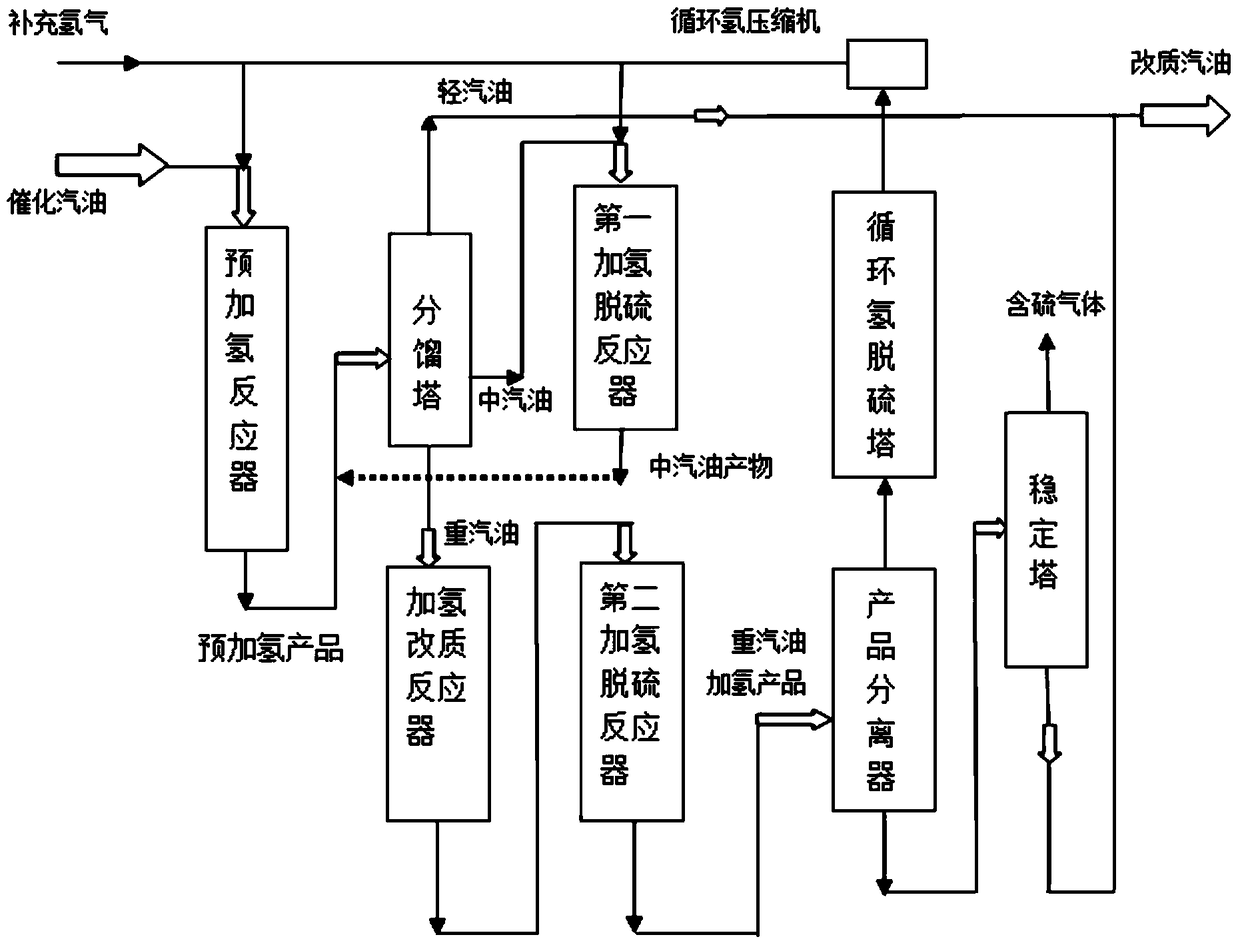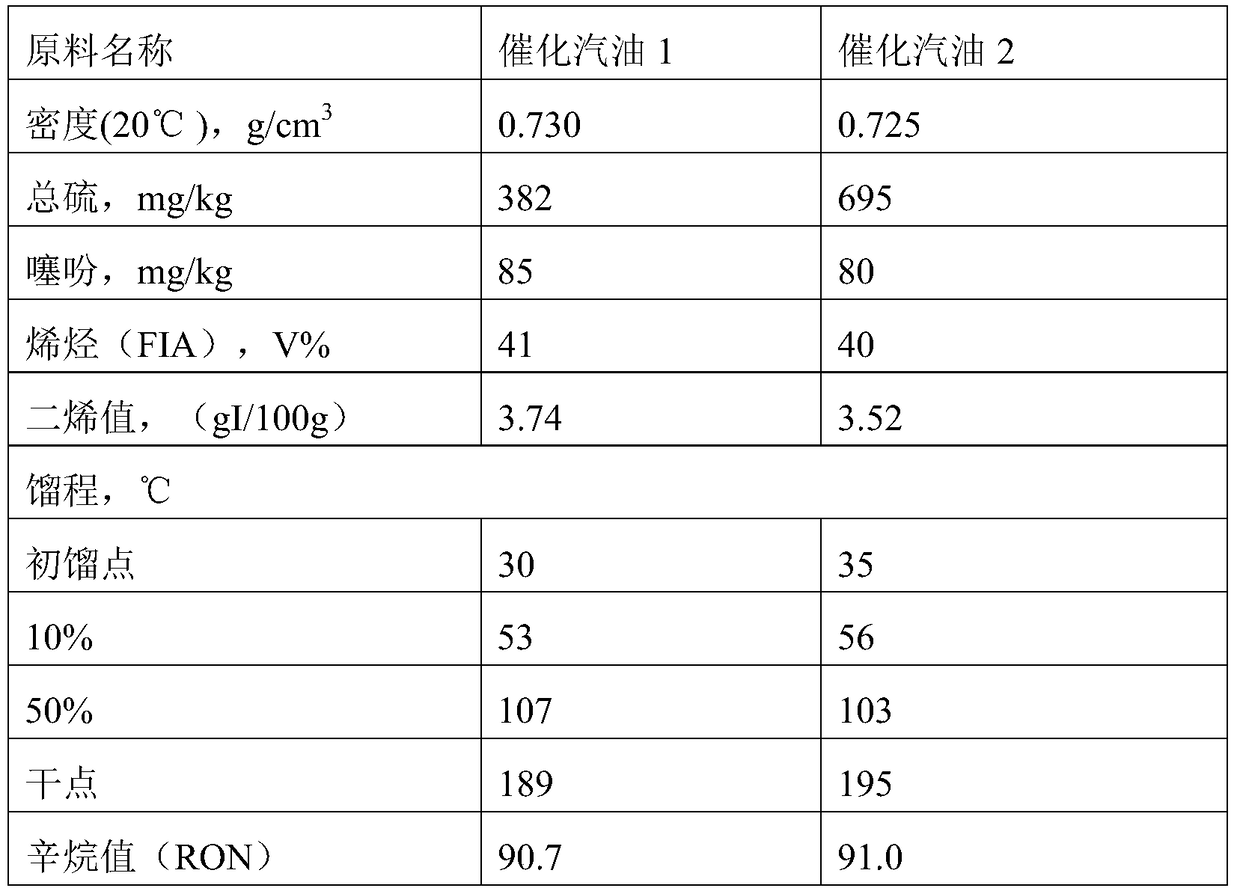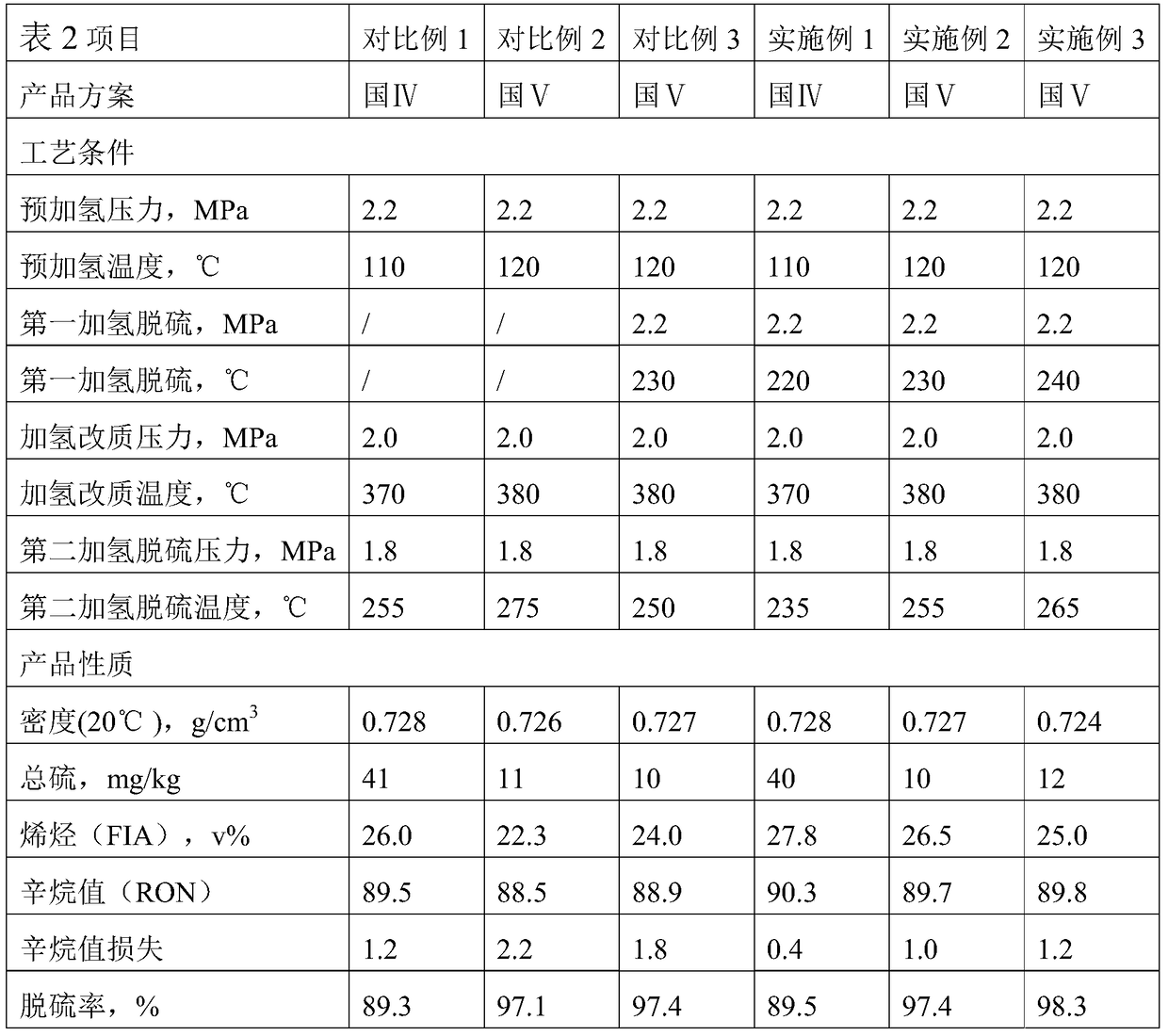A method for hydrogenation upgrading of inferior catalytic gasoline
A technology for hydrogenation, upgrading and catalytic gasoline, which is applied in the fields of hydrotreating process, hydrocarbon oil treatment, petroleum industry, etc. It can solve the problems of lower octane number, high content of olefins and sulfur in modified gasoline, and reduce the content of diolefins , high aromatization rate, and the effect of extending the operating cycle
- Summary
- Abstract
- Description
- Claims
- Application Information
AI Technical Summary
Problems solved by technology
Method used
Image
Examples
Embodiment 1
[0048] The raw material oil that embodiment 1 uses is identical with comparative example 1. Catalyzed gasoline is first heated at a hydrogen partial pressure of 2.2Mpa, a reaction temperature of 110°C, and a volumetric space velocity of 3.0h -1 , Under the condition of hydrogen oil volume ratio of 10:1, catalyst A is used for pretreatment, and then enters the fractionation tower to be cut into three components of light, medium and heavy gasoline. The temperature is 85°C, the tower bottom temperature is 210°C, the medium gasoline fraction accounts for 40% of the raw material, and the heavy gasoline fraction accounts for 20% of the raw material. Medium gasoline is first mixed with hydrogen and enters the first hydrodesulfurization reactor. At a hydrogen partial pressure of 2.2MPa, a reaction temperature of 220°C, and a volumetric space velocity of 2.5h -1 1. Under the reaction conditions of hydrogen oil volume ratio 250:1, use B catalyst to carry out hydrodesulfurization, and t...
Embodiment 2
[0050] The raw material oil that embodiment 2 uses is identical with comparative example 2. Catalyzed gasoline is first heated at a hydrogen partial pressure of 2.2Mpa, a reaction temperature of 120°C, and a volumetric space velocity of 3.0h -1 , Under the condition of 10:1 volume ratio of hydrogen to oil, use A catalyst for pretreatment, and then enter the fractionation tower to cut into three components of light, medium and heavy gasoline. The temperature is 75°C, the tower bottom temperature is 202°C, the medium gasoline fraction accounts for 50% of the raw material, and the heavy gasoline fraction accounts for 20% of the raw material. Medium gasoline is first mixed with hydrogen and enters the first hydrodesulfurization reactor. At a hydrogen partial pressure of 2.2MPa, a reaction temperature of 230°C, and a volume space velocity of 3.13h -1 1. Under the reaction conditions of hydrogen oil volume ratio of 300:1, catalyst B is used to carry out hydrodesulfurization, and th...
Embodiment 3
[0052] The raw material oil used in embodiment 3 is shown in the catalytic gasoline 2 listed in table 1. Catalyzed gasoline is first heated at a hydrogen partial pressure of 2.2Mpa, a reaction temperature of 120°C, and a volumetric space velocity of 3.0h -1 , Under the condition of hydrogen oil volume ratio of 10:1, catalyst A is used for pretreatment, and then enters the fractionation tower to be cut into three components of light, medium and heavy gasoline. The temperature is 73°C, the tower bottom temperature is 203°C, the medium gasoline fraction accounts for 47% of the raw material, and the heavy gasoline fraction accounts for 21% of the raw material. Medium gasoline is first mixed with hydrogen and enters the first hydrodesulfurization reactor. At a hydrogen partial pressure of 2.2MPa, a reaction temperature of 240°C, and a volumetric space velocity of 3.0h -1 1. Under the reaction conditions of hydrogen oil volume ratio of 300:1, catalyst B is used to carry out hydrode...
PUM
| Property | Measurement | Unit |
|---|---|---|
| specific surface area | aaaaa | aaaaa |
| specific surface area | aaaaa | aaaaa |
| specific surface area | aaaaa | aaaaa |
Abstract
Description
Claims
Application Information
 Login to View More
Login to View More - R&D
- Intellectual Property
- Life Sciences
- Materials
- Tech Scout
- Unparalleled Data Quality
- Higher Quality Content
- 60% Fewer Hallucinations
Browse by: Latest US Patents, China's latest patents, Technical Efficacy Thesaurus, Application Domain, Technology Topic, Popular Technical Reports.
© 2025 PatSnap. All rights reserved.Legal|Privacy policy|Modern Slavery Act Transparency Statement|Sitemap|About US| Contact US: help@patsnap.com



